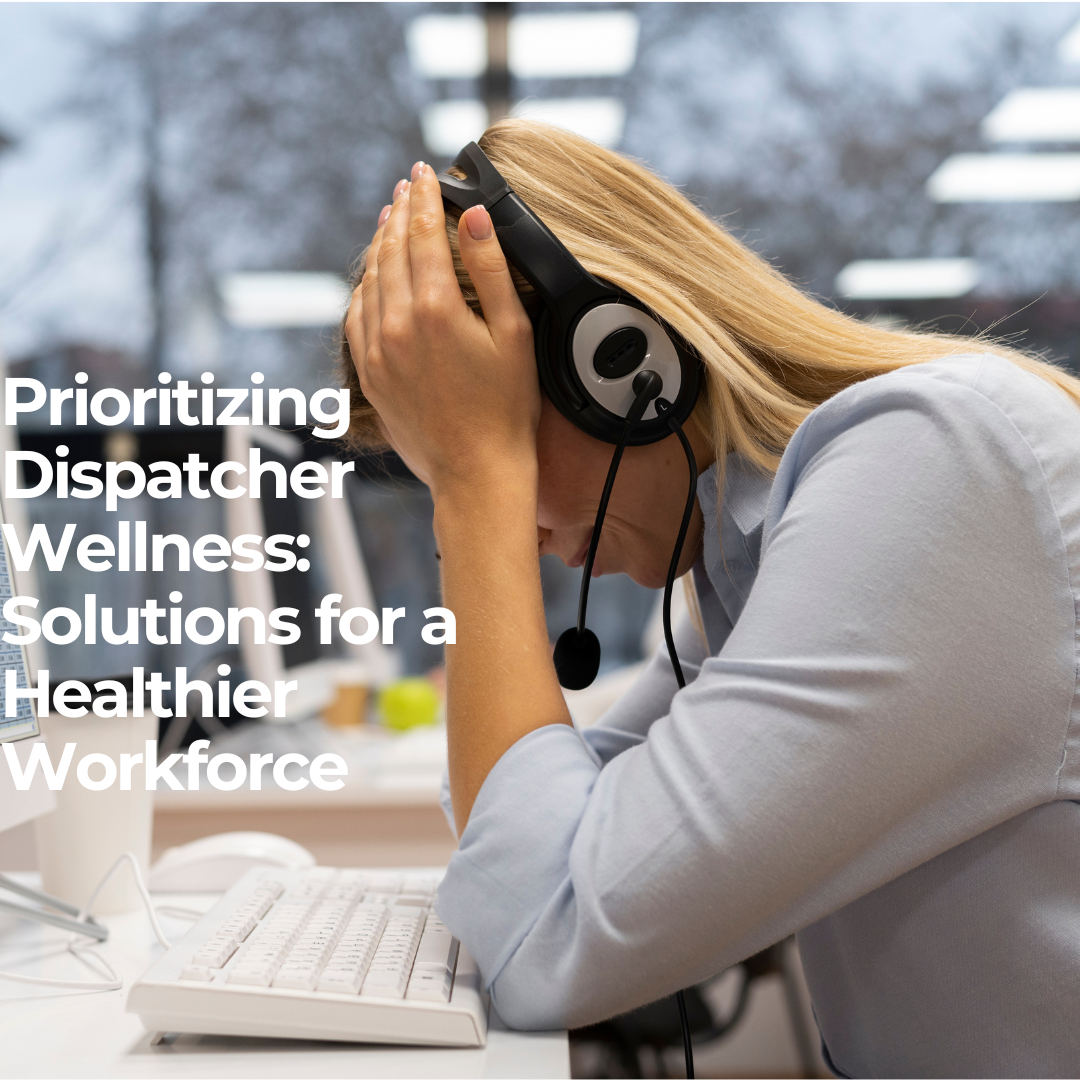Prioritizing Dispatcher Wellness: Solutions for a Healthier Workforce
911 dispatchers are the unsung heroes of emergency response, serving as the critical link between those in distress and the first responders who arrive on the scene. Their work is high-stakes, emotionally taxing, and often thankless. As discussed in our previous post, the mental health impact on dispatchers is significant, leading to conditions such as PTSD, anxiety, and burnout. Now, it’s time to shift our focus toward actionable solutions that can help dispatchers cope with these challenges and build a healthier workforce.
The Cost of Inaction
The mental health toll on 911 dispatchers isn’t just a personal issue—it affects entire agencies. High stress levels lead to increased absenteeism, high turnover rates, and reduced job performance, which can ultimately impact emergency response times and public safety outcomes. Without proactive mental health initiatives, dispatch centers risk losing experienced professionals and struggling to fill vacancies with adequately trained personnel.
Proactive Mental Health Solutions for Dispatchers
To foster a supportive and resilient work environment, dispatch centers must implement proactive measures that prioritize dispatcher wellness. Here are some key strategies:
1. Implement Mental Health Monitoring Tools
Technology-driven solutions, such as SmartProtect’s Mental Health Scorecard, can provide real-time insights into dispatcher stress levels and workload patterns. By using AI-powered analytics, agencies can detect early warning signs of burnout and fatigue, allowing leadership to take preventive action before issues escalate.
2. Encourage Peer Support and Debriefing Programs
Dispatchers often feel isolated in their experiences, but structured peer support programs can help them process traumatic calls. Encouraging open discussions about difficult calls, offering peer-led debriefing sessions, and creating a culture where seeking support is normalized can reduce emotional exhaustion and build camaraderie among teams.
3. Provide Access to Professional Mental Health Resources
Having confidential and easily accessible mental health resources, such as on-site counseling, Employee Assistance Programs (EAPs), and teletherapy options, ensures dispatchers receive the help they need. Agencies should also educate their teams on available resources and encourage utilization without stigma.
4. Optimize Scheduling to Reduce Fatigue
Long hours and rotating shifts disrupt natural sleep cycles, exacerbating stress and health issues. By leveraging data analytics to optimize scheduling, agencies can ensure fair shift rotations, adequate rest periods, and reduced overtime burdens.
5. Integrate Wellness Training into Professional Development
Mental health education should be part of dispatcher training. Teaching stress management techniques, mindfulness exercises, and resilience-building strategies can equip dispatchers with the tools they need to navigate job-related stress effectively.
How SmartProtect Empowers Dispatchers
SmartProtect is at the forefront of dispatcher wellness solutions, offering tools that support both individual well-being and organizational efficiency. With features like predictive analytics, stress tracking, and resource optimization, SmartProtect helps agencies:
✔ Identify early signs of dispatcher burnout before they lead to serious health issues.
✔ Adjust shift schedules to reduce fatigue and improve work-life balance.
✔ Integrate wellness programs based on real-time data insights.
✔ Provide leadership with actionable recommendations for improving workplace culture.
A Call to Action
The well-being of 911 dispatchers should not be an afterthought. These professionals dedicate their careers to saving lives—it's time we prioritize their mental health and well-being. Dispatch centers, policymakers, and technology providers must work together to create an environment where mental health is valued just as much as operational efficiency.
At SmartProtect, we are committed to supporting first responders with innovative solutions that enhance their well-being and effectiveness. Let’s take the next step toward a healthier, more resilient 911 workforce.
Join the Conversation
How is your agency supporting dispatcher mental health? Share your thoughts, experiences, or initiatives by tagging us in your social media post or by submitting your comments via our Contact Us page. Let’s work together to create lasting change.


